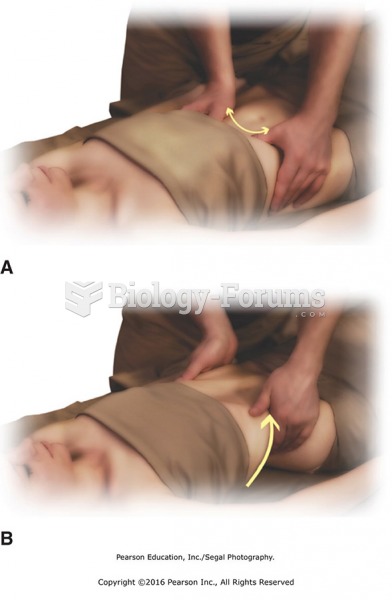|
|
|
Over time, chronic hepatitis B virus and hepatitis C virus infections can progress to advanced liver disease, liver failure, and hepatocellular carcinoma. Unlike other forms, more than 80% of hepatitis C infections become chronic and lead to liver disease. When combined with hepatitis B, hepatitis C now accounts for 75% percent of all cases of liver disease around the world. Liver failure caused by hepatitis C is now leading cause of liver transplants in the United States.
Acetaminophen (Tylenol) in overdose can seriously damage the liver. It should never be taken by people who use alcohol heavily; it can result in severe liver damage and even a condition requiring a liver transplant.
IgA antibodies protect body surfaces exposed to outside foreign substances. IgG antibodies are found in all body fluids. IgM antibodies are the first type of antibody made in response to an infection. IgE antibody levels are often high in people with allergies. IgD antibodies are found in tissues lining the abdomen and chest.
The first-known contraceptive was crocodile dung, used in Egypt in 2000 BC. Condoms were also reportedly used, made of animal bladders or intestines.
Autoimmune diseases occur when the immune system destroys its own healthy tissues. When this occurs, white blood cells cannot distinguish between pathogens and normal cells.
 Forest fragments left by clear-cutting forest from the surrounding landscape have very different phy
Forest fragments left by clear-cutting forest from the surrounding landscape have very different phy
 (Left panel) The transition level (TL) for moving out of the parental home for 240 young men and ...
(Left panel) The transition level (TL) for moving out of the parental home for 240 young men and ...
 Apply deep circular effleurage to the buttocks muscles as a warming technique. Place one hand on top ...
Apply deep circular effleurage to the buttocks muscles as a warming technique. Place one hand on top ...




